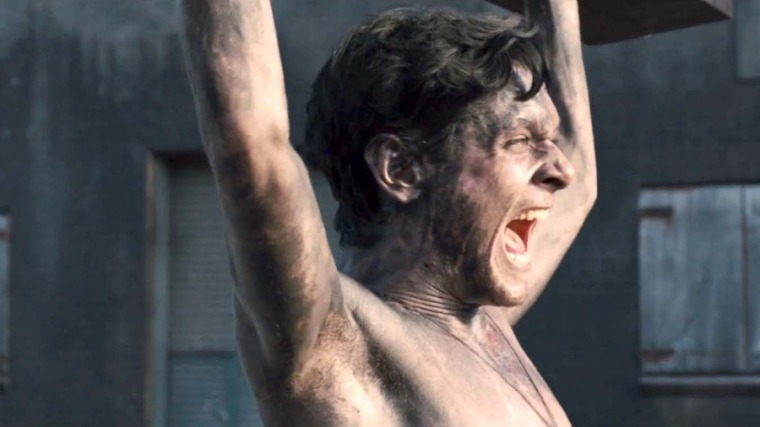Read 'Unbroken' for the rest of the story

LOS ANGELES (Christian Examiner) – In the New York Times bestseller "Unbroken," Laura Hillenbrand didn't just write a book about Olympic athlete and World War II survivor Louie Zamperini, son of an Italian immigrant couple, Hillenbrand wrote about pre-war America.
It was a simpler time when shopkeepers and schoolteachers knew the "hooligans" who tormented them, and when the misguided youth weren't bent on destruction and anarchy, but simply delighted in outwitting their elders.
Hillenbrand wrote unflinchingly and vividly about what soldiers, sailors and marines endured during the war, describing details most veterans choose to not remember, which she gleaned through sensitive reporting of several veterans in their eighties and nineties.
"Unbroken" is a compelling read for all the children and grandchildren of those who went to their graves 50-60-70 years after the war without ever telling the stories.
Louie Zamperini and his pilot survived a record 47 days in an inflatable raft after their plane went down during a rescue mission. Hillenbrand wrote about that too, in such a way that people hear the theme to the movie "Jaws" as they read. At one point sharks tried jumping into the raft to get at the airmen.
And she wrote in excruciating detail about the daily life of men in a Japanese prisoner of war camp, but with a luminous understanding of the Japanese culture that made the Americans' captors victims of their heritage without diminishing their cruelty.
"Ms. Hillenbrand has a gift for dusting off history and presenting it as compelling drama," wrote James D. Hornfischer in a 2010 review of "Unbroken" – the book – for the Washington Post.
"Unbroken" also is a morality tale. In one chapter, Zamperini doesn't even chide the third man with them when "Mac" devours all the meager rations the three had found -- a few chocolate bars.
Tossing him overboard from what started out as two inflatable rafts that the elements and sharks damaged beyond repair wouldn't have gotten the candy bars back, so Zamperini and the pilot just accepted there was no food. A few days before he died, more than a month later, the third man redeemed himself.
The Angelina Jolie film "Unbroken" launched Christmas Eve with respectable earnings, according to Variety, and was in more than 3,000 theaters across the nation on Christmas Day.
"Angelina Jolie opens 'Unbroken' with a shot of a celestial blue sky that soon darkens with a battle scene so tense and fluidly choreographed that you quickly sense that, as a director, she leans closer to hell than heaven," wrote Manohla Dargis for The New York Times.
In the last paragraph of Dargis' review," he writes, "What the movie ends up in desperate need of is a sense of life made real and palpable through dreadful, transporting details, not a life embalmed in hagiographic awe."
The book itself does that, with Hillenbrand's focus on the bigger picture and not just Zamperini.
Christian reviewers complain the movie stops before the hero's life-changing decision at a 1949 Billy Graham crusade in Los Angeles.
Conservative columnist Cal Thomas wrote, "As Hillenbrand tells it in her book, Louis came home, poured his alcohol down the drain, threw out his cigarettes, was reconciled to his wife and became a new man because, he said, he had asked Jesus Christ to be his savior."
Thomas did write in the same review, however, "Director Angelina Jolie attempts to put some flesh on the bones at the end of the film with some still shots and words that tell us that Zamperini's father led him to return to Japan on a personal mission of reconciliation."
Unlike in the movie, and contrary to what the film reviewers are writing, in the book "Unbroken," Hillenbrand delicately talks about the impact of the foundational faith of Zamperini's parents and living in 1920s-40s Christian America.
He prayed himself out of tough scrapes and other difficulties, and twice dedicated his life to God if only God would let him live. In the book, that is.